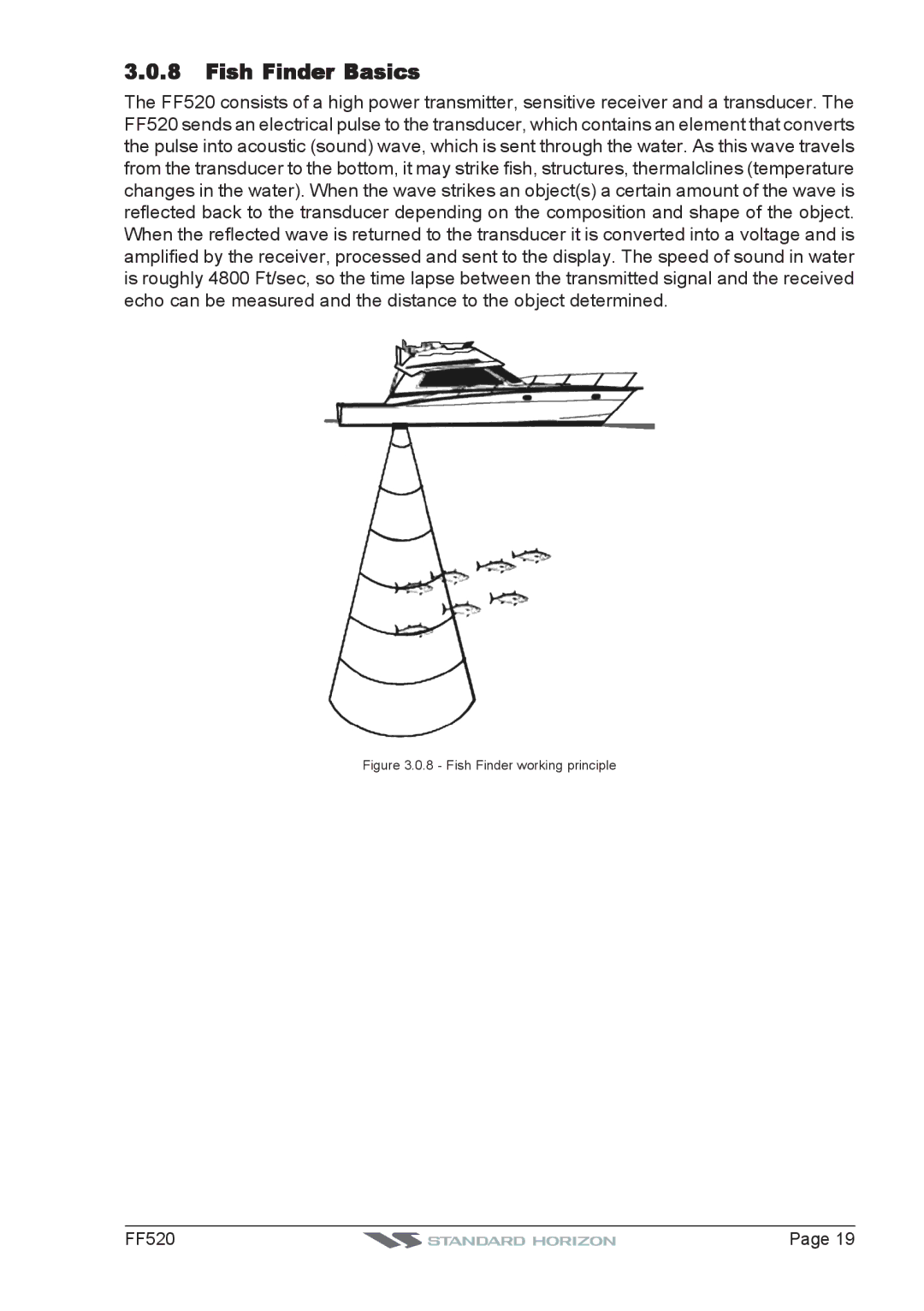
3.0.8Fish Finder Basics
The FF520 consists of a high power transmitter, sensitive receiver and a transducer. The FF520 sends an electrical pulse to the transducer, which contains an element that converts the pulse into acoustic (sound) wave, which is sent through the water. As this wave travels from the transducer to the bottom, it may strike fish, structures, thermalclines (temperature changes in the water). When the wave strikes an object(s) a certain amount of the wave is reflected back to the transducer depending on the composition and shape of the object. When the reflected wave is returned to the transducer it is converted into a voltage and is amplified by the receiver, processed and sent to the display. The speed of sound in water is roughly 4800 Ft/sec, so the time lapse between the transmitted signal and the received echo can be measured and the distance to the object determined.
Figure 3.0.8 - Fish Finder working principle
FF520 |
| Page 19 |
|
